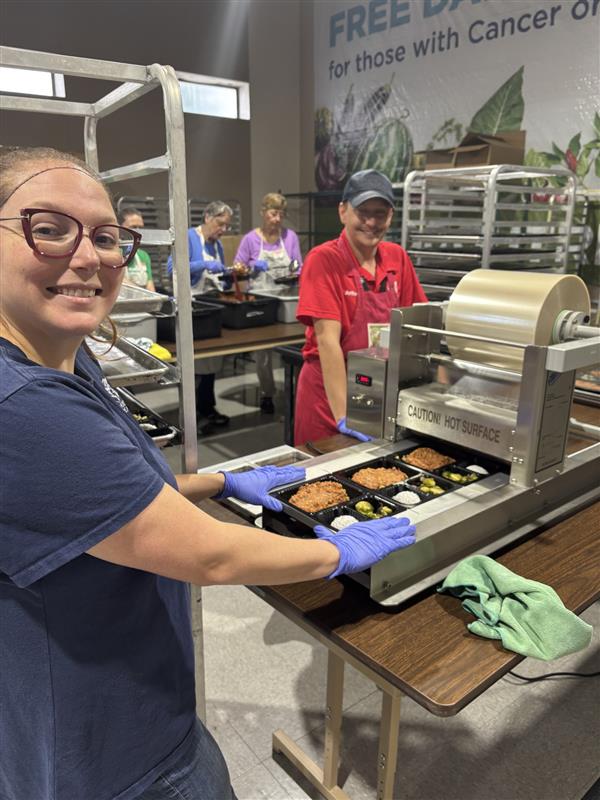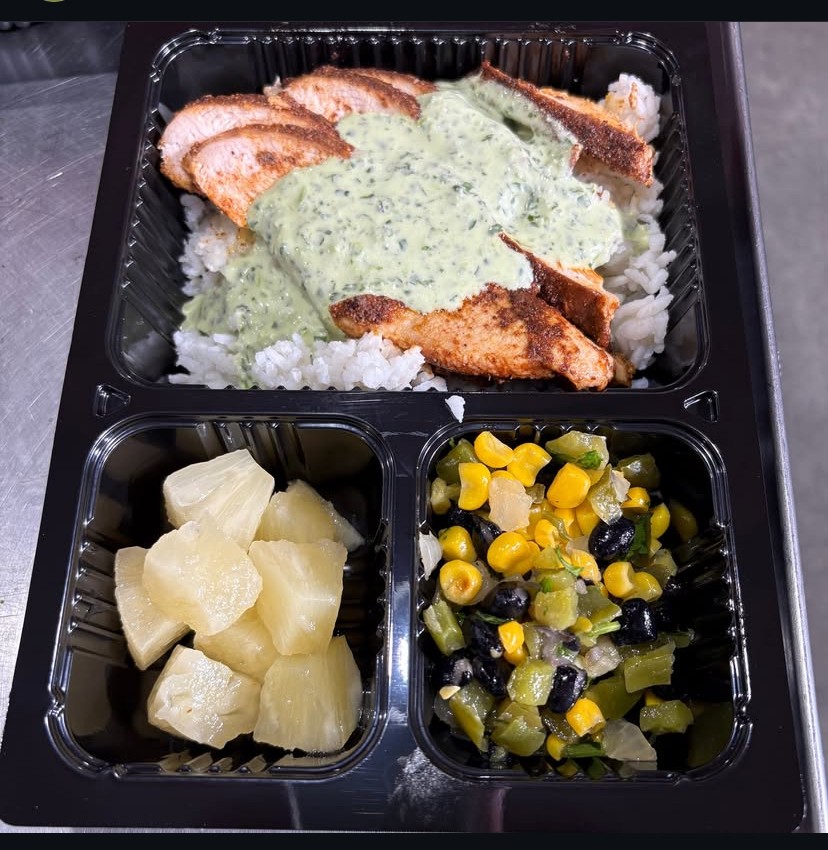The Brown School at Washington University in St. Louis is partnering with Food Outreach, a St. Louis-based nonprofit, on a two-year pilot project exploring how best to support the nutritional needs of cancer patients as they transition off their medically tailored meal program.

The project is co-led by Dan Ferris, associate professor of practice at the Brown School and co-director of policy education and practice at the Center for Social Development, and Sydney Gosik, a Brown School alumna (MPH/MSW ’20) and director of strategic initiatives at Food Outreach. Funding is provided by WashU-ACCERT, (Washington University Advancing Cancer Control Engaged Research Through Transformative Solutions), an initiative supported by the National Cancer Institute (NCI).
Currently, Food Outreach provides clients undergoing cancer treatment with up to 60 free medically tailored meals per month, including scratch-prepared frozen meals, groceries, dietitian support, and nutrition education. Clients are eligible to receive 12 months of service, with extensions available for those in ongoing active treatment. Many, however, face increased food and financial insecurity once treatment ends.
“Once clients reach the 12-month mark and are out of active cancer treatment, they ‘graduate’ from our program,” Gosik said. “This study will help us determine the best way to support clients as our services reach a conclusion and afterward, as clients transition into survivorship.”
The pilot will develop and test a “step-down” nutrition model that provides continued support as clients transition out of meal services with the goal of reducing the risks and effects associated with food insecurity after treatment. Researchers will assess whether this approach improves a wide range of outcomes such as diet quality, food security, quality of life, and healthcare costs. A participant advisory committee of current and former Food Outreach clients will guide program design, interview strategies, and interpretation of results.
“Community-engaged work and co-design approaches are critical, not only for delivering better outcomes, but also for shaping programs and policies that meet people where they are,” Ferris said.
Food Outreach is the only organization in Missouri and Western Illinois providing free, medically tailored meals to people living with HIV or cancer. In 2024, the nonprofit served over 600,000 meals to nearly 2,000 clients across 144 zip codes in the St. Louis region.



For many clients, the meals offer more than nutrition. “What we hear from our clients all the time is that not only does the food help them manage side effects of cancer treatment, like appetite changes and food tolerances, but it also reduces financial pressures, allowing them to cover other basic needs like housing, utilities, and healthcare,” Gosik said.
This pilot builds on previous WashU and Food Outreach research around a similar program supported by WashU’s Center for Diabetes Translation Research (WU-CDTR) focused on type 2 diabetes. Participant interviews highlighted important themes around how food is medicine programs can best support participants leading up to and following graduation. Those lessons directly informed the design of this cancer-focused study.
“We’re excited to advance the science of ‘food is medicine’ and medically tailored meals for cancer to understand the implementation and sustainability of community-based nutrition services and approaches for integrating into healthcare,” Ferris said. Researchers hope findings from the step-down model will serve as a blueprint for replication and scaling similar interventions nationwide.
“The pilot study is one important step toward a much larger vision,” Ferris added. “We see a future where nutrition is fully integrated as a standard component of cancer care.”
Other members of the university-community led-study team include Jewel Stafford assistant dean of practicum engaged scholarship at the Brown School; Sarah Moreland-Russell and Rachel Tabak, faculty with the School of Public Health; Amanda Gilbert, TL1 Translational Sciences Postdoctoral Fellow with the School of Public Health; Tyler Frank, a PhD candidate in Public Health Sciences; Dagimawi Mohamed, an MPH candidate, Taylor Aarns, a registered dietician with Food Outreach, and Jess Gannon, senior research manager with the Prevention Research Center.
